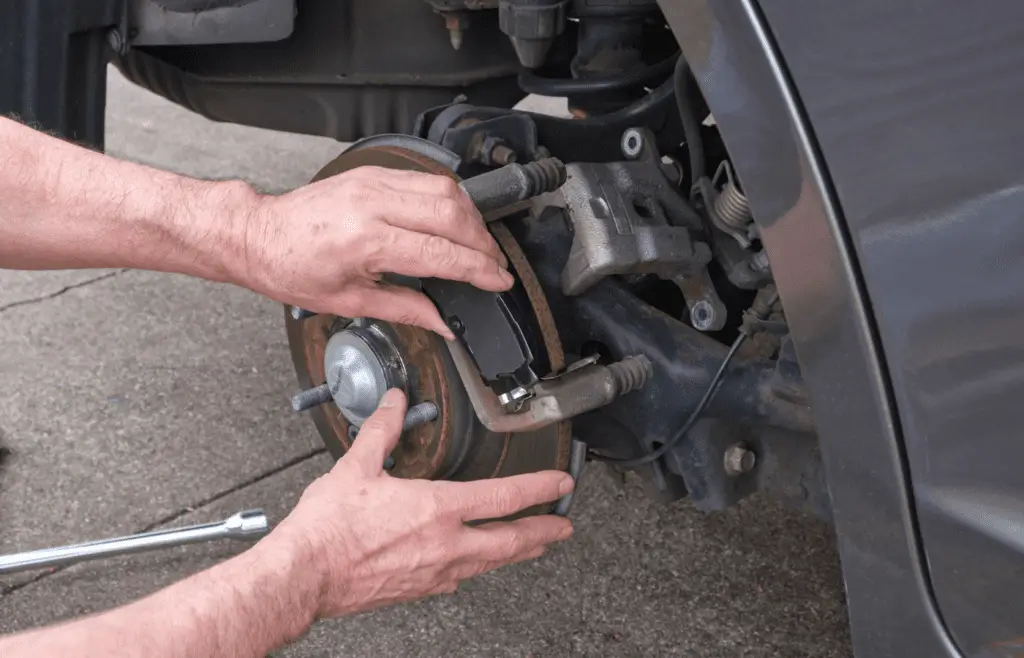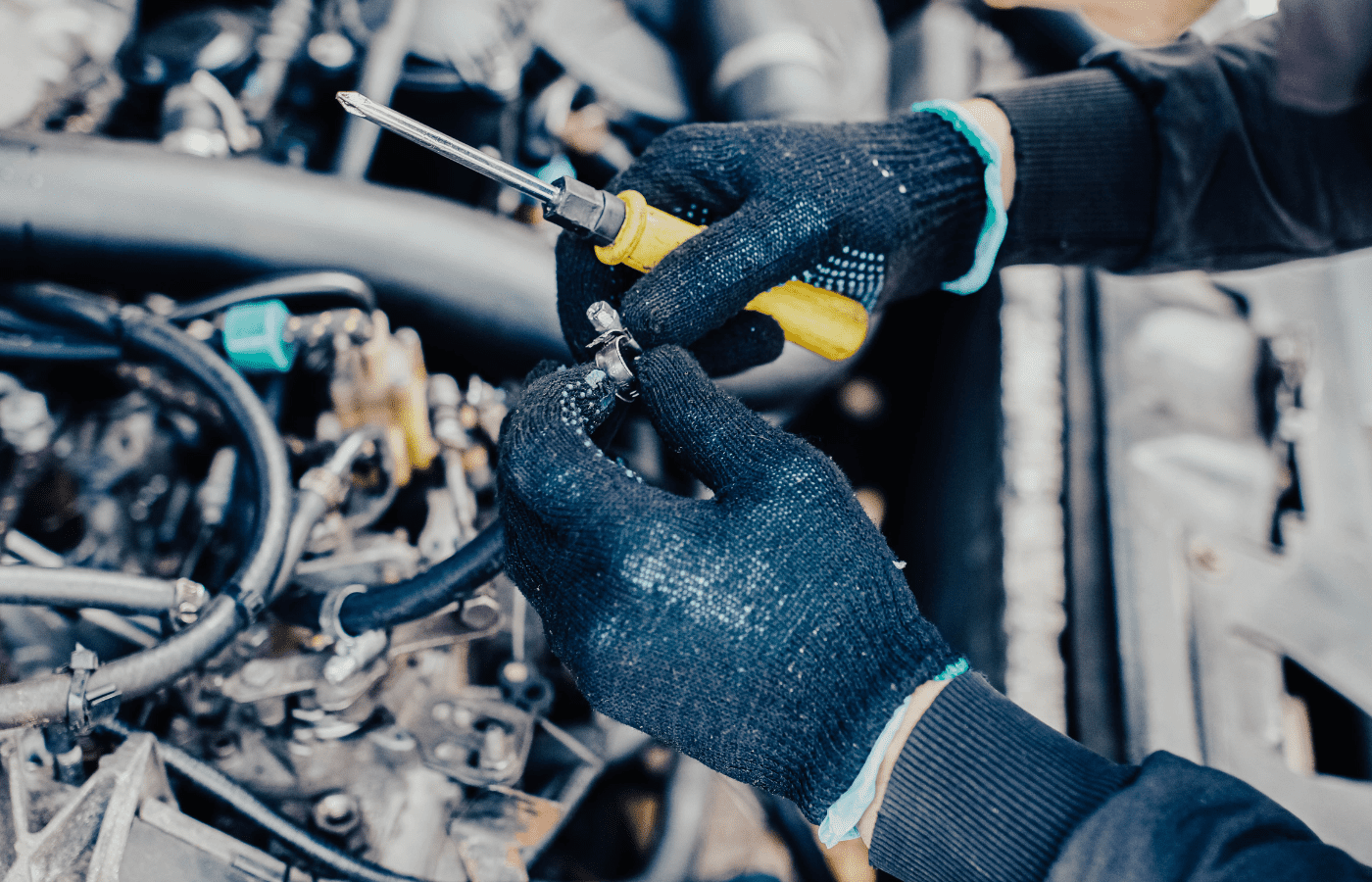Many people often confuse the fuel line of a vehicle with its brake line. Moreover, many people have the misconception that a fuel line can be used for brake fluid.
A fuel line should never be used for brake fluid since a fuel line hose is simply not compatible with brake fluid and can’t be used for such a purpose. The materials a fuel line is made from aren’t capable of handling brake fluid.
Read on to find out more about whether you can use a fuel line for brake fluid. Also, find answers to other related questions you might have regarding it.
Can You Use Fuel Line for Brake Fluid?
So, can you use fuel line for brake fluid? This is a common question many people have regarding brake fluids.
Taking the wrong action may result in unforeseen problems, so it is always wise to do your research before you do such a thing.
The answer is no. You can not use a fuel line hose for brake fluid. The reason for this is simple – the fuel line hose is not compatible with brake fluid and thus shouldn’t be used for that purpose.
The structure of the fuel line hose and the materials it is made from are simply not compatible with brake fluid.
What Are Brake Fluid Lines Made Of?
The brake fluid lines are a key part of a vehicle’s braking system. The primary task of brake fluid lines is to transfer pressure from the master cylinder all the way to the brake calipers when the brake pedal is depressed.
Brake fuel lines have a thin and flexible structure and are usually made from rubber or a mixture of some synthetic materials in addition to rubber. Some vehicles have brake lines that are made from stainless steel.
The dimensions of the brake fluid lines, including the diameter and length, can vary greatly and primarily depend on the type of braking system installed in a vehicle.
To check the current price and availability of the MuHize Copper-Nickel Brake Line, click here to view the listing on Amazon.
What Are the Two Types of Brake Lines?
Brake lines can be divided into two types: rubber ones and stainless steel ones. Each type of brake line has its own pros and cons and it is up to the manufacturer to decide which type goes well with the vehicle’s braking system.
Rubber brake lines are more common and have greater flexibility. Rubber lines usually cause the brake to have a spongey feel to it. One downside of having rubber brake lines is that they can swell with time, which can significantly affect braking performance.
Stainless steel brake lines, on the other hand, are more durable and rigid compared to rubber ones. These brake lines are made from a soft brake line which is covered in a stainless steel mesh. This braided steel mesh provides better durability, and increased strength but decreases flexibility.
Is Fuel Line and Brake Line the Same?
So is a fuel line the same as a brake line? The answer is no. Both lines are different when it comes to structure and properties and each has a different purpose.
A fuel line, as the name implies, carries the fuel of the vehicle. The primary purpose of a fuel line is to transport fuel from one area in the vehicle to another.
A brake line, on the other hand, transfers the pressure from the depressed brake pedal to the brake calipers.
Fuel lines are larger and carry fuel at a relatively lower pressure. Brake lines, however, use high pressure to apply the brakes and are smaller in size.
What Hose Is Compatible With Brake Fluid?

If you need to get your vehicle’s brake line or hose changed, you need to see if it is compatible with the brake fluid. If it is not, it can create a host of problems that badly affect the braking performance of your vehicle.
The only type of hose that is compatible with brake fluid is the ethylene propylene diene monomer (EPDM) brake hose.
EPDM is a synthetic rubber that is specifically used to make hoses for brake fluid, among other uses. EPDM hoses resist heat, abrasion, and other chemicals.
Besides an EPDM hose, no other type of hose is compatible with brake fluid.
Can You Make Your Own Brake Lines?
Believe it or not, you can actually make your own brake lines at home! The process isn’t very easy and straightforward for a beginner but with some patience and effort, it can be done.
Making your own brake lines is doable and saves you money. The tools and materials needed to make brake lines are inexpensive and easily available.
Check out this guide for more information and guidelines on making your brake lines.
What Is the Best Material to Use for Brake Lines?
As we mentioned earlier, brake lines in most vehicles are made from rubber or stainless steel. In some vehicles, they are also made from other metals such as aluminum.
While rubber brake lines are thin and flexible, metallic ones made from stainless steel or other metals are more durable and strong. Metallic brake lines are also better at withstanding higher temperatures.
So there is no single best material for brake lines that would work perfectly for all types of vehicles. Each material has its own pros and cons and is best suited for a certain type of braking system.
Generally speaking, stainless steel brakes are preferred in most cases due to their durability and strength.
Final Thoughts
To sum it up, a vehicle’s fuel line can’t be used for brake fluid since it is not compatible with brake fluid. For this reason, you should never use it for brake fluid.
Brake fluid lines are typically made from two materials: rubber and stainless steel. Each material has its own pros and cons and is best suited for different types of braking systems than the other.
Stainless steel brake lines are typically stronger and more durable than brake lines made from other materials. This is why they are usually preferred over brake lines made from other materials.



